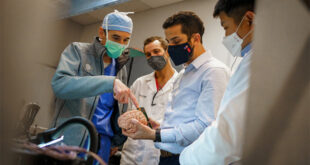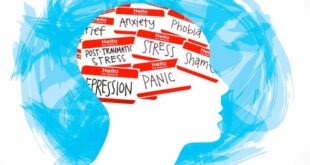Artificial intelligence tools, amidst excitement, sensationalism, and fear, are revolutionizing various aspects of daily life, including medicine. ChatGPT has been explored in medical fields, science writing, and medical education. In this study, we aimed to evaluate ChatGPT’s efficacy in neurosurgical education by integrating it into the annual exam for neurosurgical residents at Geneva University Hospitals. These residents undergo this exam …
Read More »Science
Cannabis use and mood disorders
Mood disorders , such as major depressive disorder (MDD) and bipolar disorder (BD), affect a significant portion of the global population, with MDD alone impacting around 300 million individuals worldwide. These disorders typically start in adolescence and can lead to severe functional impairment, impacting quality of life. At the same time, cannabis use is becoming more prevalent globally, with estimates …
Read More »Parental influences on children’s dairy products consumption
Milk and dairy products are rich in essential nutrients like vitamins A, K, various B vitamins, and calcium, crucial for skeletal growth, especially during childhood. Inadequate calcium intake during this period can lead to increased risks of bone-related diseases later in life, such as osteoporosis. Dairy products are among the most affordable and convenient sources of calcium in the American …
Read More »Assessment of confidence in medical writing
Effective medical writing and publishing study results in peer-reviewed journals are essential for sharing findings globally. Success in this process indicates personal credibility and aids career advancement. To succeed, authors must adhere to guidelines from organizations like the International Committee of Medical Journal Editors (ICMJE) and master English language skills for academic writing. Challenges are magnified for non-native English speakers …
Read More »Physical activity and mental health
Physical activity is vital for treating and preventing physical diseases and certain psychiatric conditions like depression and anxiety. Yet, alongside its benefits, it can also lead to mental health issues such as excessive exercise and overtraining syndrome. Despite increasing research, the exact mechanisms behind the positive and negative impacts of exercise on mental health remain unclear. This article reviews the …
Read More »Strength use in the workplace
This article reviews literature on strengths utilization and enhancement in work settings, offering insights into its outcomes and proposing a model for fostering strengths in workplaces. Findings suggest that leveraging strengths correlates with increased job satisfaction, engagement, well-being, and performance. Additionally, a five-step integrative model is outlined to guide strengths development interventions in organizations, with implications for theory, practice, and …
Read More »Toward institutionalization of Responsible Research and Innovation (RRI)
The study investigates the evolution and application of Responsible Research and Innovation (RRI) frameworks in Spanish technological centers. It develops a process-maturity framework to assess their commitment to RRI principles, facilitating learning and bridging the gap between theory and practice. This framework serves as both an evaluation methodology and a management system for promoting responsible behavior in innovative activities. Over …
Read More »The effect of the ketogenic diet on resistance training load management
We investigated how a ketogenic diet affects load control in trained individuals during a 6-week resistance training program, considering factors like sleep, diet, and fatigue that influence true load and daily readiness. This expands understanding beyond traditional one-repetition maximum tests. The ketogenic diet (KD) involves significantly reducing daily carbohydrate intake to less than 50 grams, while increasing fat and possibly …
Read More »Attentional bias toward cupping therapy marks
We explored if individuals exhibit negative emotions and attentional bias towards painful marks left by cupping therapy on the body, as some patients find it challenging due to skin discoloration. Despite its medical advantages, fear of discomfort during cupping may lead to heightened vigilance towards pain-related cues. Fifty volunteers underwent visual stimulation involving various body regions with or without cupping …
Read More »Using language science to promote interest in science in a science museum
The study explored visitor reactions to a language science demonstration in a science museum, an area typically underrepresented. Language science, an interdisciplinary study, combines social and biological sciences with computer science and engineering, connecting strongly to humanities, education, and clinical fields. Qualitative analysis indicated that visitors found language science demonstrations engaging, learned key scientific points, and suggested that this topic …
Read More » Canadian Academy Discover, Publish, Thrive
Canadian Academy Discover, Publish, Thrive









